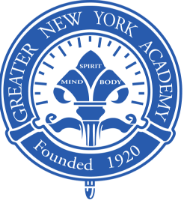Music
 Choir performance is encompassed by the fine arts. Many researchers today are finding that the study of the arts has both academic and non-academic benefits. Fine arts, therefore, are very important to the educational experience of every student. Eric Jensen, noted brain-research scholar, states "The arts enhance the process of learning. The systems they nourish, which include our integrated sensory, attentional, cognitive, emotional, and motor capacities, are, in fact, the driving forces behind all other learning. . .The arts. . . provide learners with opportunities to simultaneously develop and mature multiple brain systems. . ." ( Arts with the Brain in Mind, page 2)
Choir performance is encompassed by the fine arts. Many researchers today are finding that the study of the arts has both academic and non-academic benefits. Fine arts, therefore, are very important to the educational experience of every student. Eric Jensen, noted brain-research scholar, states "The arts enhance the process of learning. The systems they nourish, which include our integrated sensory, attentional, cognitive, emotional, and motor capacities, are, in fact, the driving forces behind all other learning. . .The arts. . . provide learners with opportunities to simultaneously develop and mature multiple brain systems. . ." ( Arts with the Brain in Mind, page 2)
Jensen cites several research studies that also identify non-academic benefits of the arts. A study of the fine arts promotes "self-discipline and motivation. . . aesthetic awareness, cultural exposure, social harmony, creativity, improved emotional expression, and appreciation of diversity. . . the underpinnings of a health culture." ( Arts with the Brain in Mind, page 3)
The vast array of research confirms that a study of the arts supports the holistic development outlined by Ellen G. White.
Our ideas of education take too narrow and too low a range. There is need of a broader scope, a higher aim. True education means more than the pursual of a certain course of study. . . It has to do with the whole being, and with the whole period of existence possible to man. It is the harmonious development of the physical, the mental, and the spiritual powers.
Ellen G. White, Education, page 13
A study and appreciation of the fine arts will influence students throughout their lives and will contribute to the development of their physical, mental, and spiritual powers. It will also develop in them an appreciation of the beautiful, both in God?s creation and in human expression while nurturing their individual ability.
